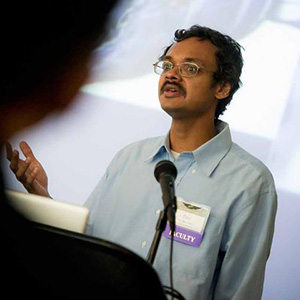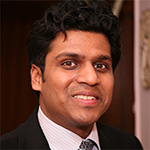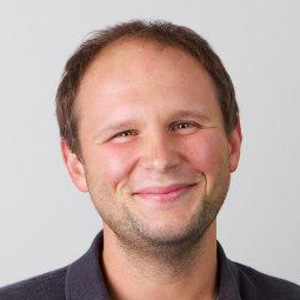
Google Selects UC San Diego Computer Science Professor and Alumni for Faculty Research Awards
Published Date
By:
- Doug Ramsey
Share This:
Article Content

CSE professor Ravi Ramamoorthi’s new award from Google is his second in three years.
Google has announced two new Google Faculty Research Awards to CSE alumni and one to CSE Prof. Ravi Ramamoorthi in the Jacobs School of Engineering of the University of California, San Diego. It is Ramamoorthi's second such award, after receiving one in 2014 while he was still at UC Berkeley (just months before he joined the CSE faculty at UC San Diego). In 2015 CSE Prof. Steven Swanson was the sole recipient at UC San Diego of the Faculty Research Award.
The program received 950 proposals in the company's open call, with which it aims to "identify and support world-class, permanent faculty pursuing cutting-edge research in areas of mutual interest." The program allows Google to maintain strong ties with academic institutions pursuing innovative research in core areas relevant to its mission, notably computer science and related topics such as machine learning, speech recognition, natural language processing, and computational neuroscience. This year's proposals came from over 350 universities across 55 countries.
For the awards, the selection committee selected 151 winning projects, including the one to CSE's Ramamoorthi, who is also director of the university's Center for Visual Computing.

CSE alumnus Yuvraj Agarwal is now a professor at Carnegie Mellon University
Specifically, Google will support the CSE professor's research on "Unified Multi-Cue 3D Depth Estimation from Light Field Images." The project was submitted in the Physical Interfaces and Immersive Experiences category, a relatively new area for the Faculty Research Awards (with proposals in this category up 19 percent over last year).
"We are seeing a revolution in imaging technology, with the conventional camera being replaced with a light-field sensor," said Ramamoorthi. "Instead of capturing a simple 2D image, these new cameras use micro-lenses or multi-camera arrays to capture a full 4D light field." He also believes the next revolution in light-field cameras will involve bringing the technology to smartphones.
"Light-field cameras are a single-shot 3D depth estimation and shape capture device," added Ramamoorthi, noting that the passive devices can overtake active devices such as the Kinect sensor which usually cannot be used outdoors. "Indeed, we believe that light-field cameras will revolutionize and democratize 3D capture, bringing it to the masses."

CSE alumnus Zachary Tatlock is now a professor at
The two CSE alumni who made the Google list this year included Yuvraj Agarwal (Ph.D. '09), now a professor at Carnegie Mellon University. The award to Agarwal, whose advisor was CSE Chair Rajesh Gupta, was in the Privacy category. And Zachary Tatlock (Ph.D. '14) was cited for work in Systems (Hardware and Software). Tatlock, whose advisor in CSE was Sorin Lerner, is currently a professor at the University of Washington.
The largest increase in support this year, however, went to faculty on machine learning projects, up 71 percent compared to the previous round. The Google grants cover tuition for a graduate student and provide both faculty and students the opportunity to work directly with Google researchers and engineers. If CSE faculty are interested in applying for the next annual round, the deadline is this October 15.
Share This:
You May Also Like
Stay in the Know
Keep up with all the latest from UC San Diego. Subscribe to the newsletter today.


